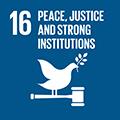Re-Focussing Qualitative Research: Improving the efficacy, rigour and relevance of focus group discussions in Aboriginal health service contexts
Australian Research Council (ARC)
Duration: April 2015 – February 2019
Background
This research involved an in-depth investigation into the use of Focus Group Discussions (FGDs) in Aboriginal health services research. The aim of this project was to generate knowledge to inform the accountable, culturally appropriate, ethically sound and methodologically rigorous use of FGDs in qualitative Aboriginal health service research.
FGDs are a common way of gathering qualitative data in Aboriginal health services research however there have been no studies on the question of whether they are culturally appropriate research tools, nor are there specific guidelines available to ensure that FGDs are delivered to collect data in ways that are consistent with Aboriginal approaches to consultation, ownership and ways of knowing.
What we did
In Stage 1 of this project we successfully recruited and interviewed researchers who use focus groups as a method and policy makers who utilise qualitative research to inform their policy making practices. Eligible participants were identified from conducting extensive searches of ARC and NHMRC commissioned research, and government websites and organisational charts. Relevant agencies (including the Local Health District, Primary Health Network, NSW Health, Department of Health and Department of the Prime Minister and Cabinet) were contacted to participate. Senior staff and managers with designated roles in Aboriginal health were targeted. Semi-structured interviews were conducted either face-to-face or over the phone over a period of 24 months, from August 2016 to August 2018. A total of 34 interviews were completed with researchers from universities, research institutes or consultant companies/agencies, and 21 policy makers from across departments at local, NSW and Commonwealth levels.
All Stage 1 data were entered and classified in NVivo and qualitative data analysis using framework and thematic approaches were undertaken by multiple members of the research team. The preliminary results of Stage 1 were disseminated via an oral presentation at the Australian Institute of Aboriginal and Torres Strait Islander Studies Conference in Canberra in March 2017, and a poster presentation at the NHMRC-Lowitja Institute Symposium 2017, as well as at the Aboriginal and Torres Strait Islander Studies Conference in Brisbane in July 2019.
For Stage 2, Listening to Aboriginal Voices, ethical approval was obtained in June 2016 following discussions with CEOs of several Aboriginal Medical Services in NSW. Recruitment of organisations and participants to Stage 2 continued into early 2018. Two focus groups were conducted with 15 Aboriginal community participants, and a further 13 in-depth interviews were conducted with staff of Aboriginal Community Controlled Health Organisations (ACCHOs). Results from Stage 2 were disseminated at the NHMRC Symposium on Research Translation in November 2018 in Sydney and at the European Congress of Qualitative Inquiry in Edinburgh in February 2019.
The major activity for Stage 3 of the project was the hosting of a Knowledge Exchange Forum at the University of Technology, Sydney in October 2018. The workshop brought together stakeholders, researchers, Aboriginal community members, and ACCHOs to engage in a knowledge exchange forum and facilitate the development of a model with culturally effective guidelines and resources for focus group discussion research in Aboriginal health services. The aim of the Knowledge Exchange Forum was to develop a comprehensive, evidence-informed framework for appraising, designing and undertaking focus group discussion research in Aboriginal health service delivery contexts and guidance on associated training; and explore the feasibility of applying such a framework.
Research activities are completed, with the project concluding in early 2019. A key outcome from the research is a model for how focus groups research in health services can be conducted, analysed, disseminated and utilised in a way that is consistent with Aboriginal ways of being, knowing and doing.




